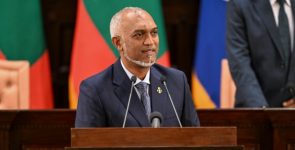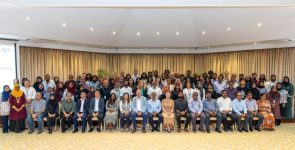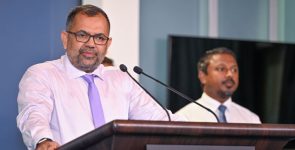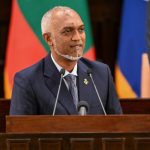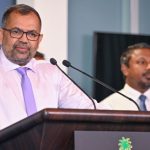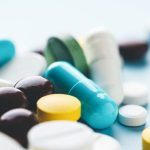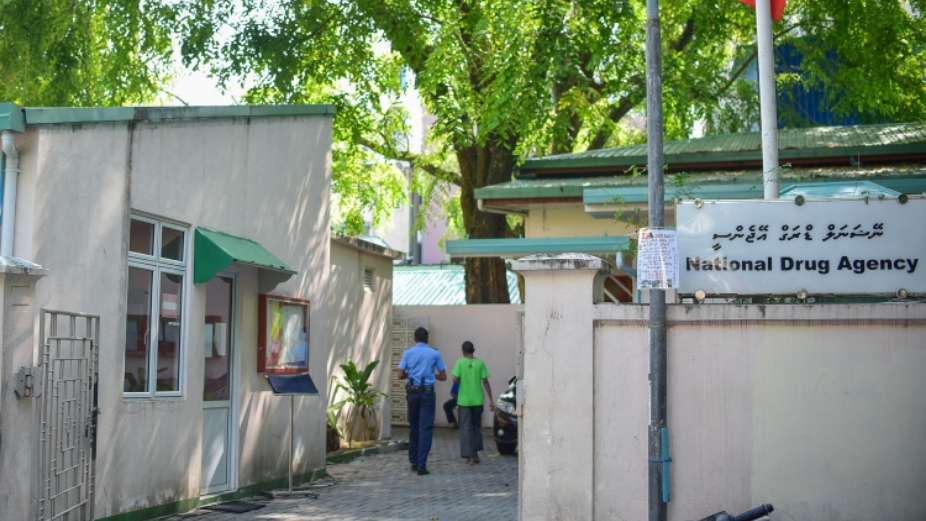
Drug addiction is one of the most pressing issues in Maldives. Almost every citizen and household is affected by this directly or indirectly. Over the years, with a rise in the number of substance abusers, the Maldivian drug subculture has developed gradually, despite a system in place to assist in its control and to provide rehabilitative programs.
Under the Maldives Drug Act 17/2011, National Drug Agency (NDA) was established in 1995 as an institution to enforce policies related to this Act and to provide treatment to drug-dependent persons with a view of reintegrating them into society as responsible citizens. NDA is currently under the administration of the Home Ministry.
However, the current state of the country shows that NDA has failed to effectively execute 17/2011 over the last two decades.
The United Nations Office on Drugs and Crime report on national drug use survey of Maldives 2011/2012 revealed that the estimated number of drug users in the atolls was 3,154, and 4,342 in Male’.
The majority of the survey respondents who had ever used drugs belonged to the age group of 15-19 years. Almost half of the drug users in both Malé and atolls were employed. Among the drug users who were interviewed, the majority were unmarried, and half of them were unemployed.
The report indicates that the response to the drug abuse issue in the country appeared to be leaning towards the criminal justice system rather than health and welfare systems, as a significant proportion of the community were convicted.
A large percentage of substance abusers don’t have anything to fall back on. Hence, many people who have developed an addiction to expensive drugs such as heroin and crack/cocaine and cannot afford their habit tend to commit crimes to buy drugs.
The revelation of the report is not surprising as this turns out to be the case, most of the time. There are currently over 600 people waitlisted under court rulings for the rehab centers managed by the NDA. Under the state budget, NDA received over MVR 79 million in 2019 and MVR 86.2 million this year. The 2021 state budget has allocated MVR 105.5 million for the agency.
However, Maldives has yet to see an effective approach taken by the authorities in assisting and rehabilitating substance users. Most of the facilities under NDA is below capacity, despite the number of people waitlisted to receive treatments. The residential rehabilitative center in K. Himmafushi has a capacity of 172 but currently houses 97 people. Similarly, the detoxification center which can house 10 people is currently treating just two people.
Commissioner of Police, Mohamed Hameed said that substance users receive one treatment program and that there isn’t a rehabilitative program aimed at specific substances. He also said that the current administration is working on establishing more effective programs to assist with the current issue.
Similarly, Gender Ministry representative for NDA Board, State Minister of Gender Ministry, Aishath Rasheed said that aftercare programs should be set along with the rehabilitation programs. She noted that most of the people released under the system have a hard time fitting back into society due to a lack of a supportive system by the community. Hence, an aftercare program is needed to ensure that they have something to fall back on.
Recently, a petition to reform NDA has been circulating on social media platforms. An initiative by Hands Together association, the petition demands proper functioning of the system, removal of incompetent personals, hiring of qualified experts to lead NDA, a proper audit of the NDA, restructuring the NDA, and most importantly, execution of 17/2011 to the fullest.
It also requests immediate access to treatment, evidence-based treatment, a remand center, decentralized community treatment, rehabilitation for women and children, proper aftercare, and many more.
There is a lot of work done to be here in the Maldives. But can the work be done by NDA? Do we need new management under the institution? One thing for sure is, we are in need of more facilities and programs that will allow substance users to seek the help they need.





